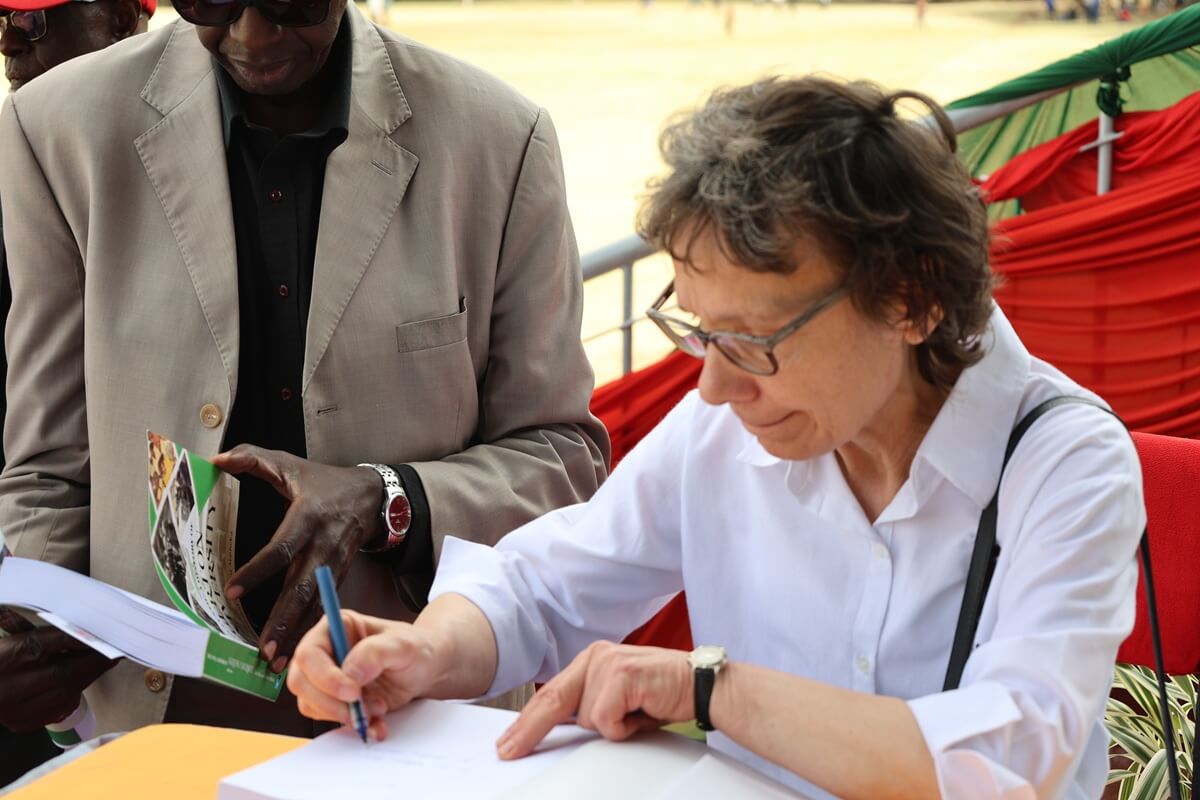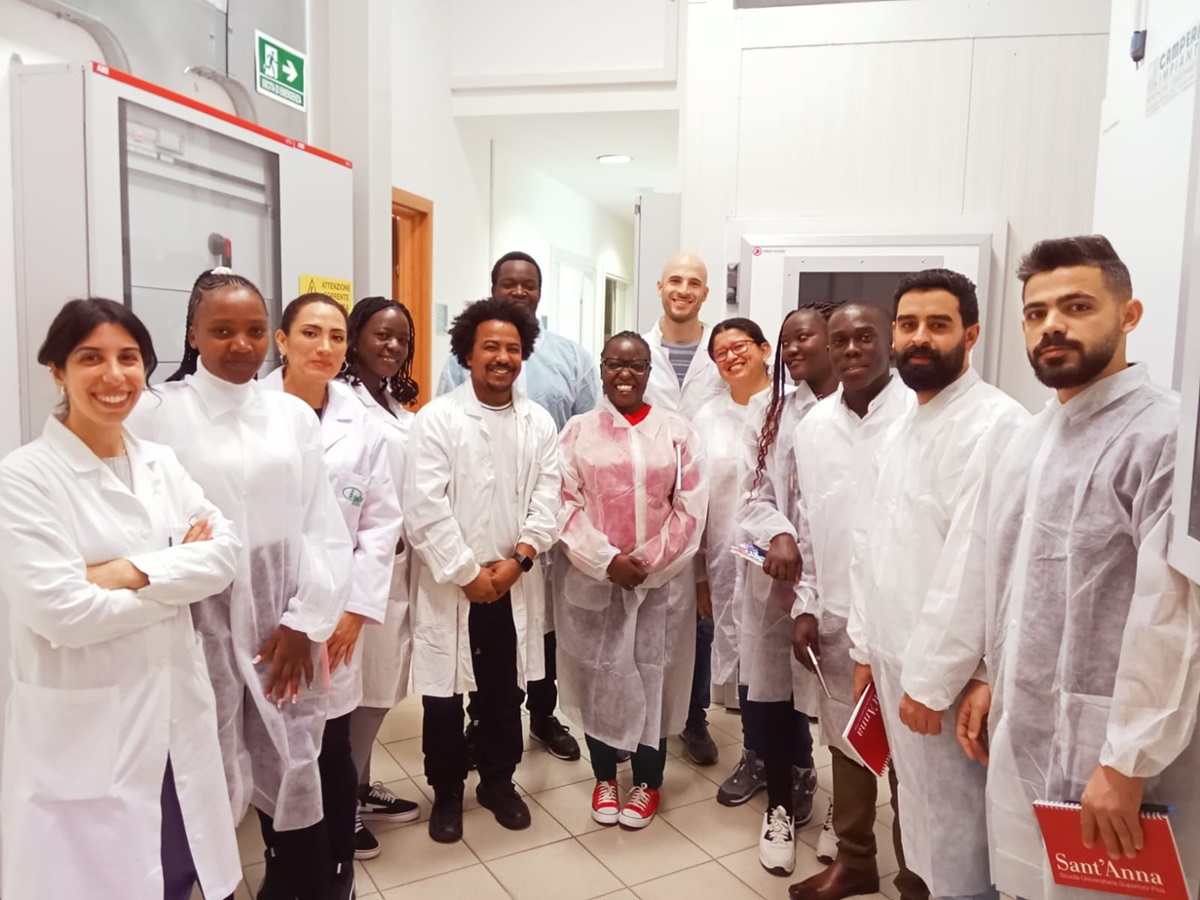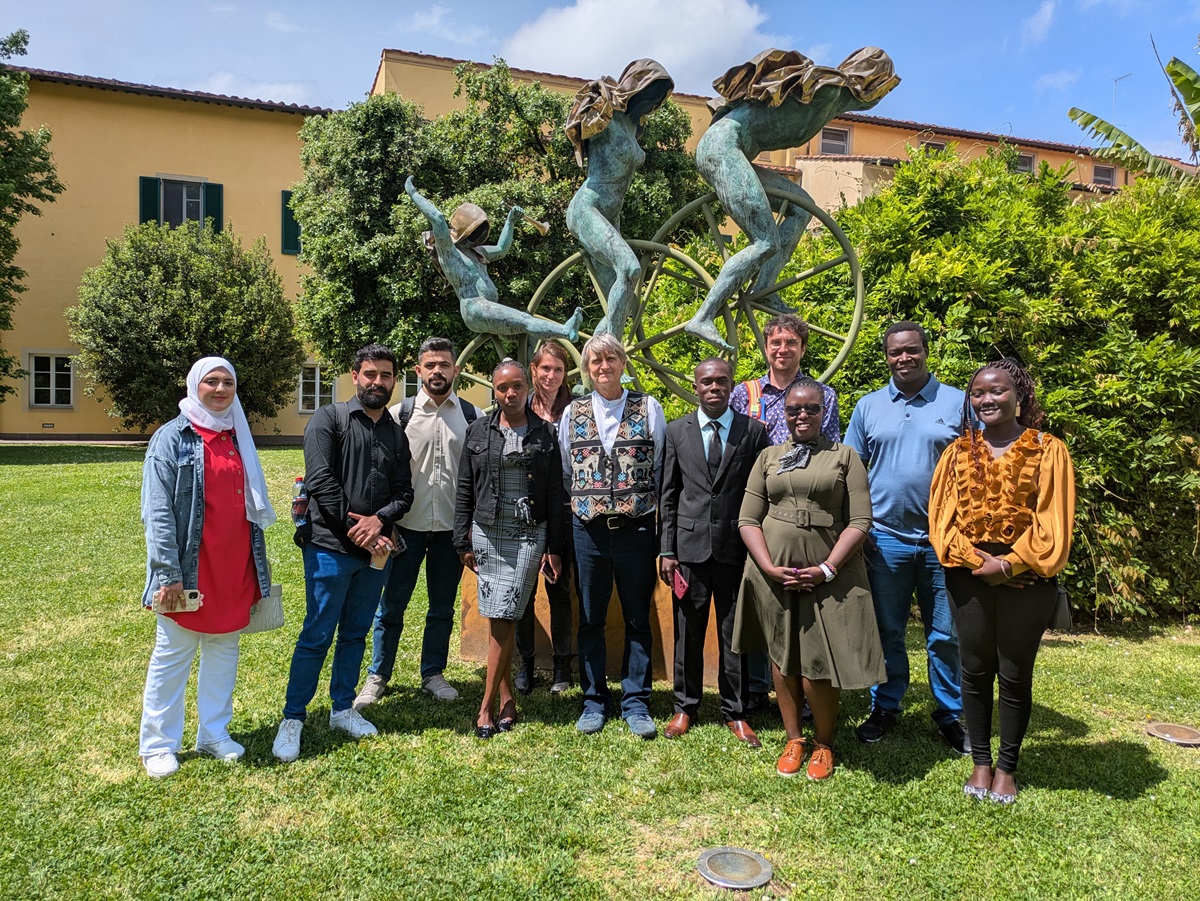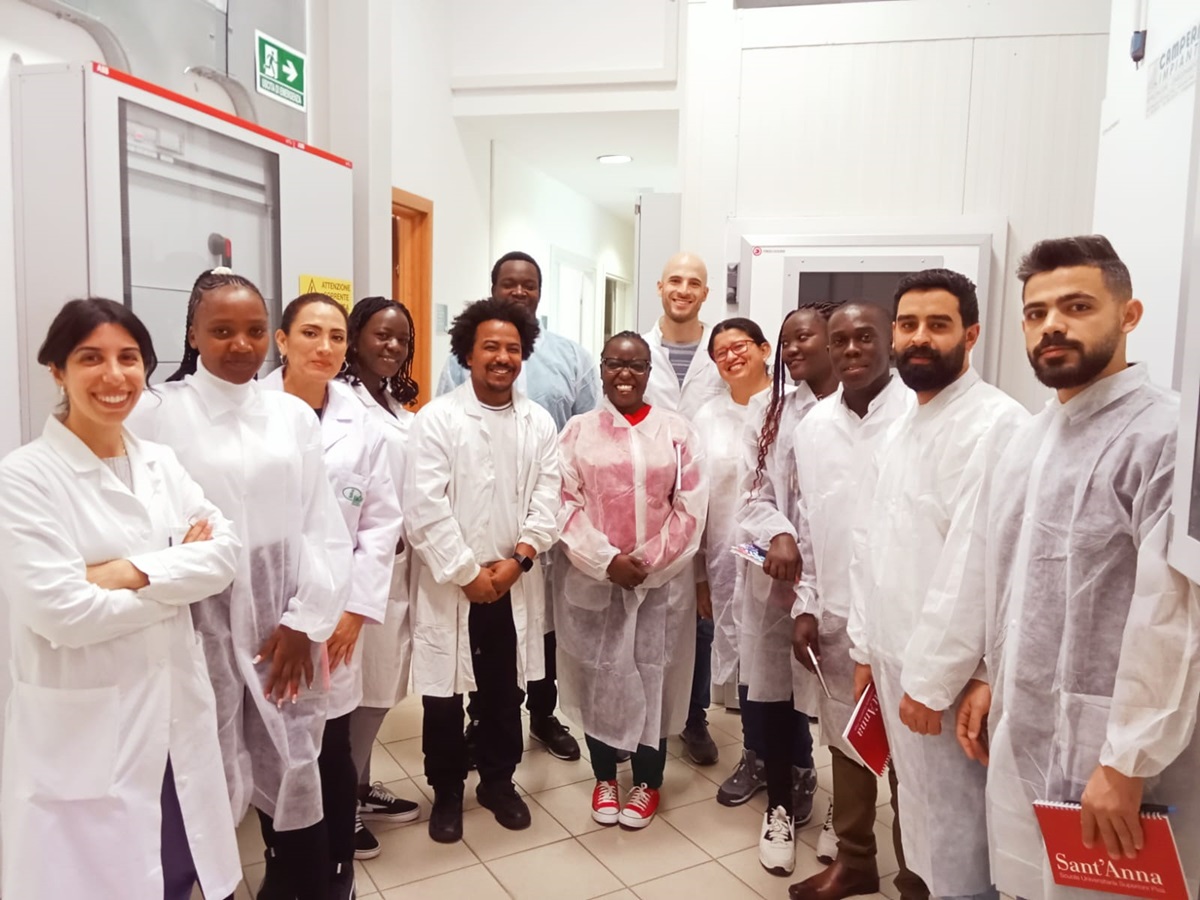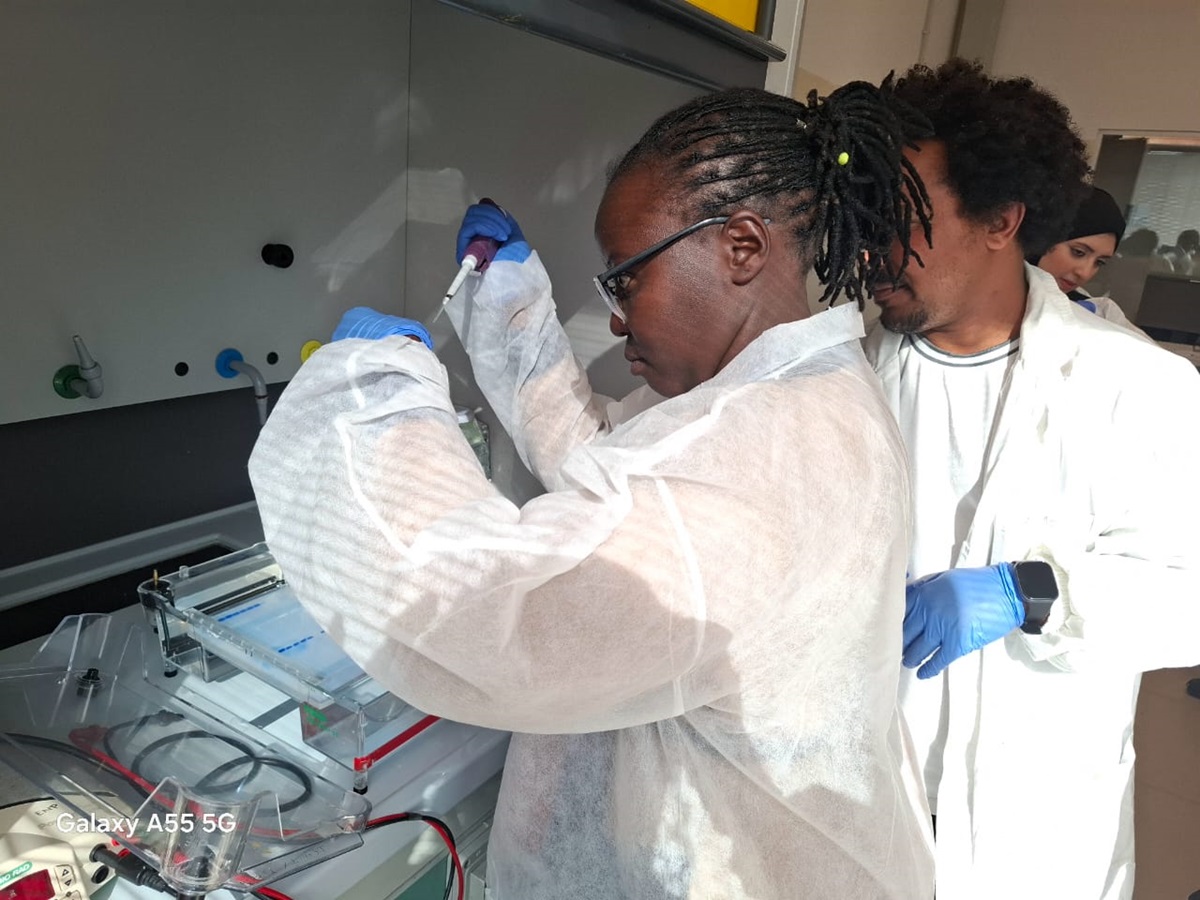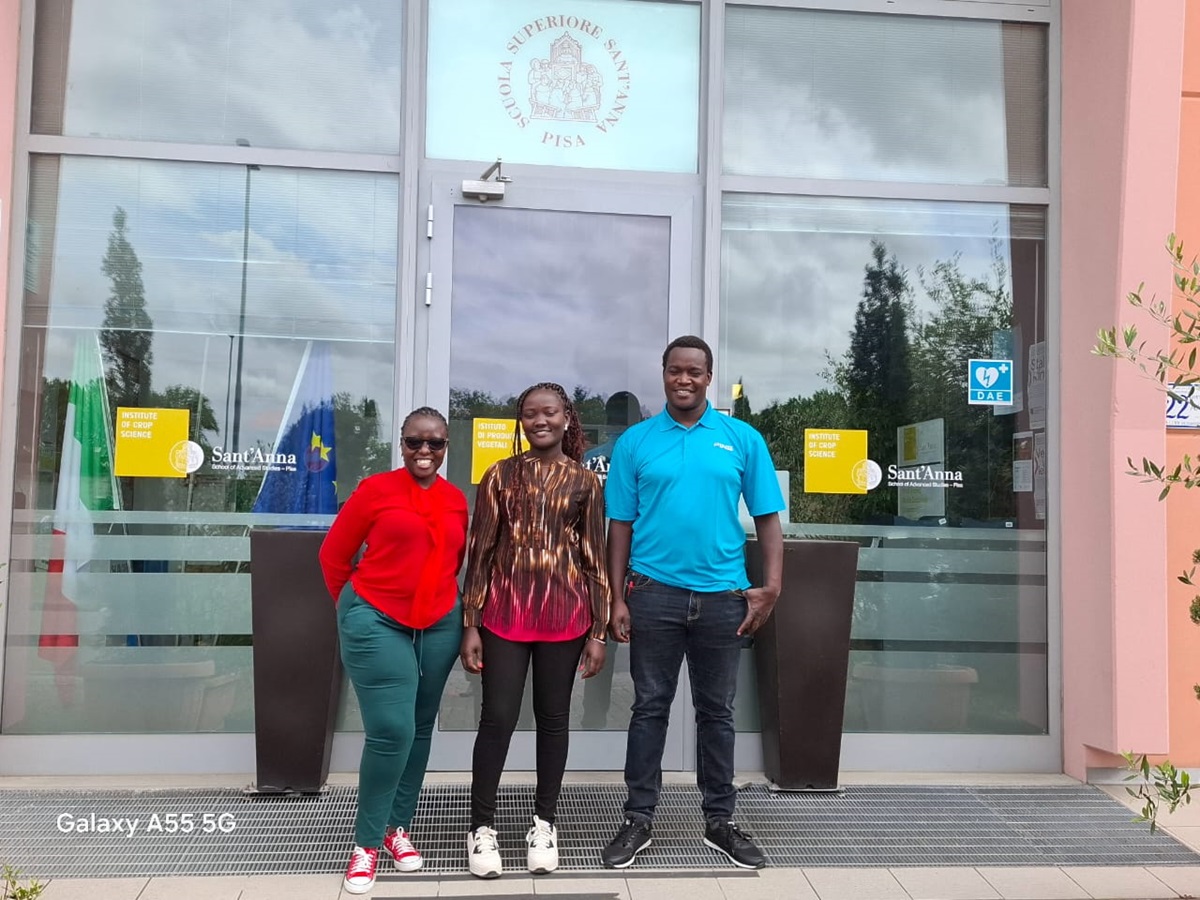BREEDTECH initiative (Building Capacity in Plant Breeding and Biotechnology Education and Research through Partnership Program in Africa, the Middle East, and Europe for Agricultural Transformation) is a European Union-funded project involving academic and research institutions from Kenya, Ethiopia, Palestine, Italy, Sweden, and Serbia. It seeks to build capacity in plant breeding and biotechnology by promoting the use of modern tools, digital technologies, and cutting-edge concepts integrating African and Palestinian researchers into European research networks.
Three postgraduate students from the Department of Crops, Horticulture, and Soils: Ruth Wangari Muriuki (PhD Agronomy), Ivan Obare (PhD Plant Biotechnology), and Edinah Chepkemoi (MSc Agronomy) are among the first Kenyan cohort to benefit from the initiative.The workshop was held in Pisa, Italy, organized by the Institute of Plant Sciences at Scuola Superiore Sant’Anna (SSSA) the lead coordinator of Work Package 2 (Capacity Building and Equipment Upgrade). The workshop, in collaboration with partner institutions including Egerton University, focused on "Advanced Applications in Genetics and Genomic Tools in Crop Improvement."During the training, the students received hands-on experience in wet-lab techniques such as DNA extraction, PCR, and genotyping. They also gained practical knowledge in analyzing molecular data, including the use of genomic tools like Genome-Wide Association Studies (GWAS).

The workshop introduced them to the latest advancements in molecular breeding and demonstrated how these technologies can be effectively integrated into local plant breeding programs. The training in Italy significantly enhanced the students' technical capacity, equipping them with the skills needed to drive innovation in crop improvement back in Kenya.This cross-continental collaboration is expected to contribute directly to developing climate-resilient, high-quality crop varieties tailored to Kenya’s diverse agricultural landscapes, ultimately supporting smallholder farmers, especially women, and enhancing national food security.





